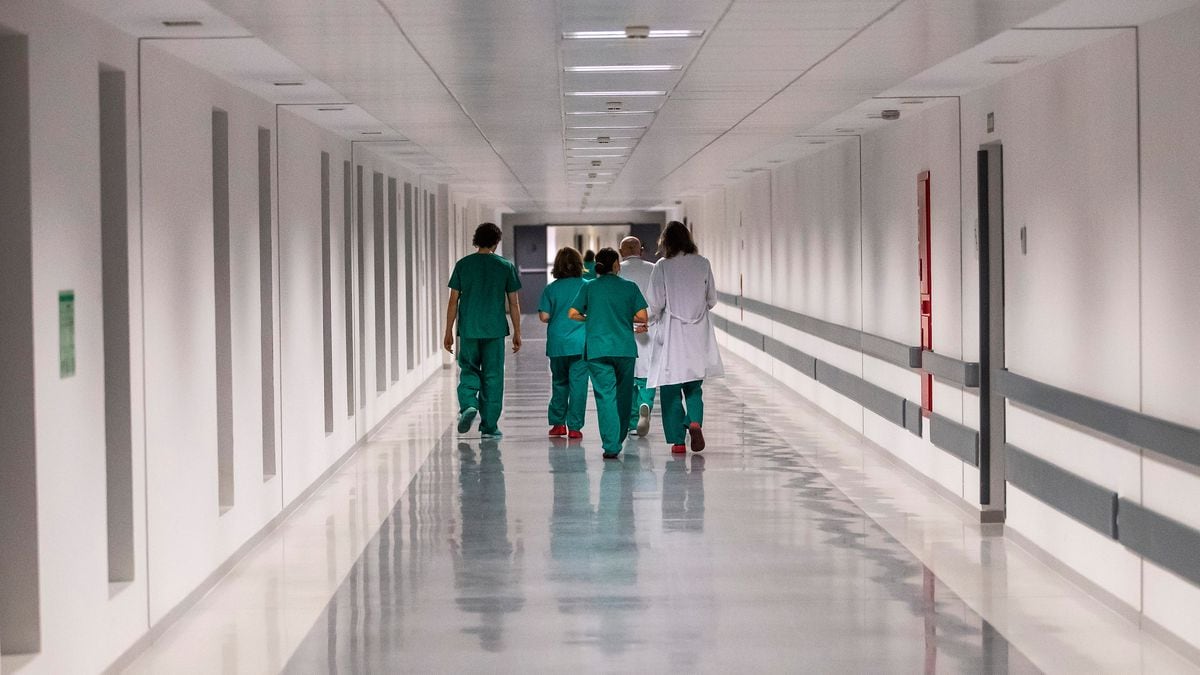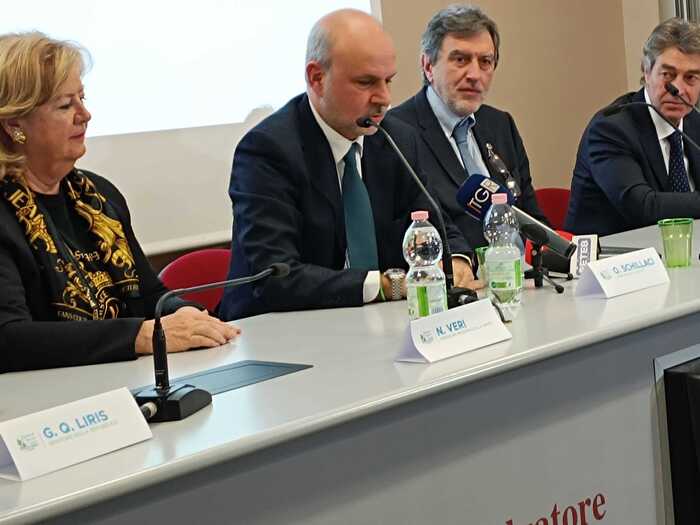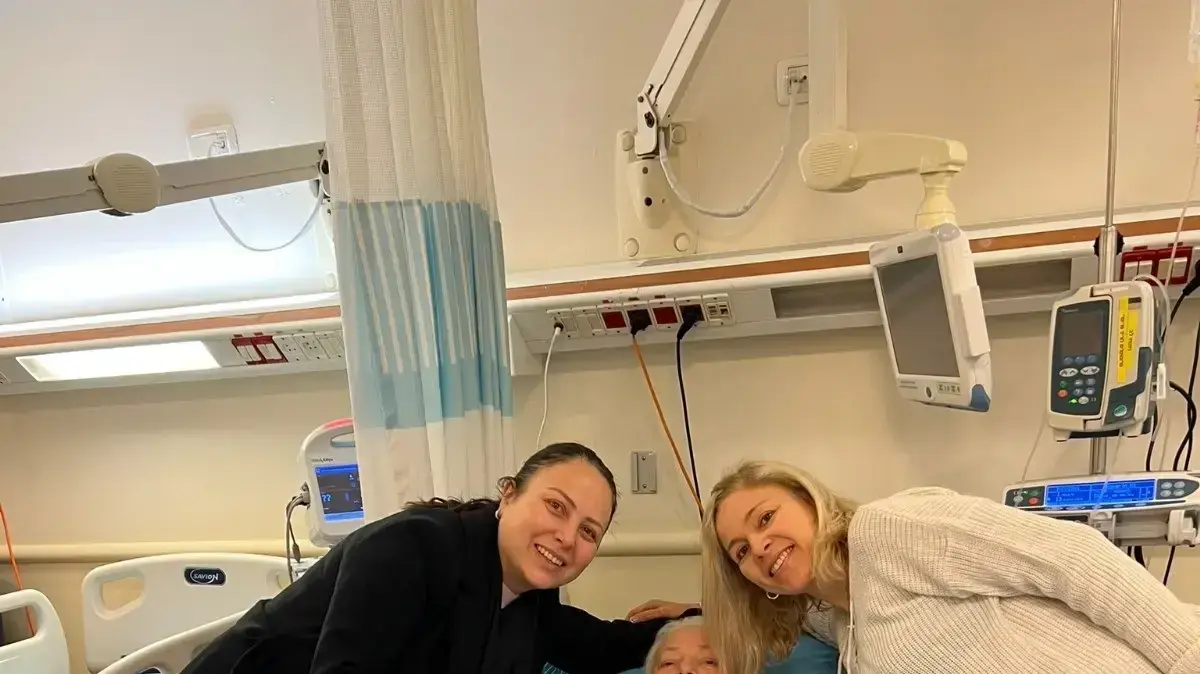In Germany, doctors and nurses have long been working hard again.
Munich doctors who name a major problem explain how they want to master the corona crisis.
During the second corona wave, the number of intensive care patients also increased in Germany.
However, doctors and nurses are not only entrusted with corona cases.
The biggest problem at the moment is clearly identified, but it cannot be resolved so quickly.
Munich - In the
fight against the corona virus *
, intensive care
physicians
need staying power.
For the most part, the same
doctors and nurses
have been fighting for the lives of
seriously ill Covid 19 patients
since spring
.
There is a lack of specialists everywhere who are trained for this difficult task - in
Germany of
all places
, a stronghold of high-performance medicine that defied the first corona wave with comparatively low losses.
But now the fighting situation has worsened - and not just because of the increasing number of infections.
What is really going on in our
intensive care units
?
An analysis.
Corona crisis in Germany: The current situation in the intensive care units
In
Munich *
there were 307 corona patients in clinics on Friday, 77 of them in intensive care units.
For critics of the
corona protective measures
, this number of cases may not sound scary.
But it already poses enormous problems for the specialists: Many have to
take on
extra shifts and additional night shifts
, and vacations are canceled.
The personnel effort is enormous -
if only
because the employees
are only
allowed to
care for corona cases or only normal intensive care patients to
protect
against infection
.
And all of this during the autumn and winter months, when
beds are often scarce
in the intensive care units
due to classic infectious diseases such as the flu or falls
.
The decisive background for the
staff shortage
: While the clinics for corona patients were literally emptied in spring, their treatment during the second wave is practically incidental.
Planned hospital stays and operations
are no longer or not yet canceled - on the contrary: some
hospitals
are still in the process of making up for the
postponed treatments from the spring
.
In addition, fortunately, more
emergency patients are daring to go
to the clinic again, who preferred to stay at home in the spring for fear of being infected with the virus.
"The care of corona patients is still on top," reports Dr.
Vanessa Rembold, who together with Dr.
Michael Findeisen
heads
the internal intensive care unit at the
Munich Clinic Harlaching
.
Video: A corona outbreak occurred in a Munich hospital
Corona crisis in Germany: The personnel situation in the intensive care units
The big problem in the intensive care units: "We have the
necessary machines
, but we urgently need
more people
who can work with them," says Dr.
Find iron.
At least five people are needed just to turn a ventilated patient in bed.
You work
in heavy protective equipment and with masks *
- and you are also highly concentrated.
Not everyone wants to do this backbreaking job in the intensive care unit.
Politicians pretend that they have recognized the problem and want to make the
nursing profession more attractive
.
But it would take some time for
the newly trained specialists
to arrive in the clinics.
In addition, the
framework conditions
have hardly improved so far.
Corona crisis in Germany: The strategy in the intensive care units
"We
now
know the
enemy
better than
we did in the
spring," says Dr.
Rembold.
Doctors now know that severe Covid-19 courses can often affect not only the lungs but
all organs
.
"In the worst case, the reaction to the virus results in
an extreme inflammatory process in the entire body
, which can lead to severe
thrombosis, pulmonary embolism or strokes
," says Dr.
Find iron.
That is why the vast majority of patients in the corona intensive care unit receive the anticoagulant
heparin
as a
precaution
and more consistently than in spring also
dexamethasone
- a strong anti-inflammatory drug containing cortisone.
Remdesivir
has a limited role in the management of severe cases.
“It inhibits virus replication.
It is often too late for intensive care patients, ”explains Dr.
Rembold.
It is all the more important to detect the infection early.
The insidious: Many patients are still doing relatively well for a long time.
"At first, it is often
not as difficult for
those affected to
breathe
as patients with
classic pneumonia,
"
says
senior physician Rembold.
In many cases, the
condition of corona patients
only
worsens
ten to fourteen days after the first
symptoms *
.
Most seriously
ill patients
still have to be
artificially ventilated
.
However, the specialists usually wait a little longer before connecting their intensive care patients to the devices.
Before that, they increasingly use the so-called
high-flow oxygen administration
.
The patient is given
high doses of oxygen
through a large nasal cannula
to make breathing easier.
"Thanks to high-flow oxygen, we can now
help
in some cases
without artificial ventilation
," reports Dr.
Find iron.
This has advantages - for example, that the patient is
spared anesthesia
.
The tricky thing: “You shouldn't miss the time to switch from high-flow oxygen to ventilation.
In many cases, artificial ventilation is still
life-saving,
”emphasizes Dr.
Rembold.
+
"Corona annoys everyone - including us doctors and nurses": Dr.
Vanessa Rembold (r.) From the Harlaching Clinic, like her nurses, has her hands full.
© Markus Götzfried
Corona crisis in Germany: This is the forecast
Because the technology is available, Germany and Bavaria in particular are still a long way from a
collapse of the intensive care units
.
However, the shortage of staff is increasingly causing the experts a headache.
“Colleagues from other specialist departments are not all equally well suited to step in here,” says senior doctor Findeisen.
“The teams in the intensive care units have to
look after
more and more patients
.
With increasing numbers of corona cases, the
quality of the treatment could
decrease. "
In addition,
patients with heart attacks and strokes must
continue to
receive
care
during the pandemic
.
"That is why it is so important that the
AHA rules *
continue to be adhered to in order to reduce the incidence of infections and, with a time delay, the number of patients in hospitals," emphasizes Dr.
Rembold.
(Andreas Beez) * merkur.de and tz.de are part of the nationwide Ippen-Digital editorial network







